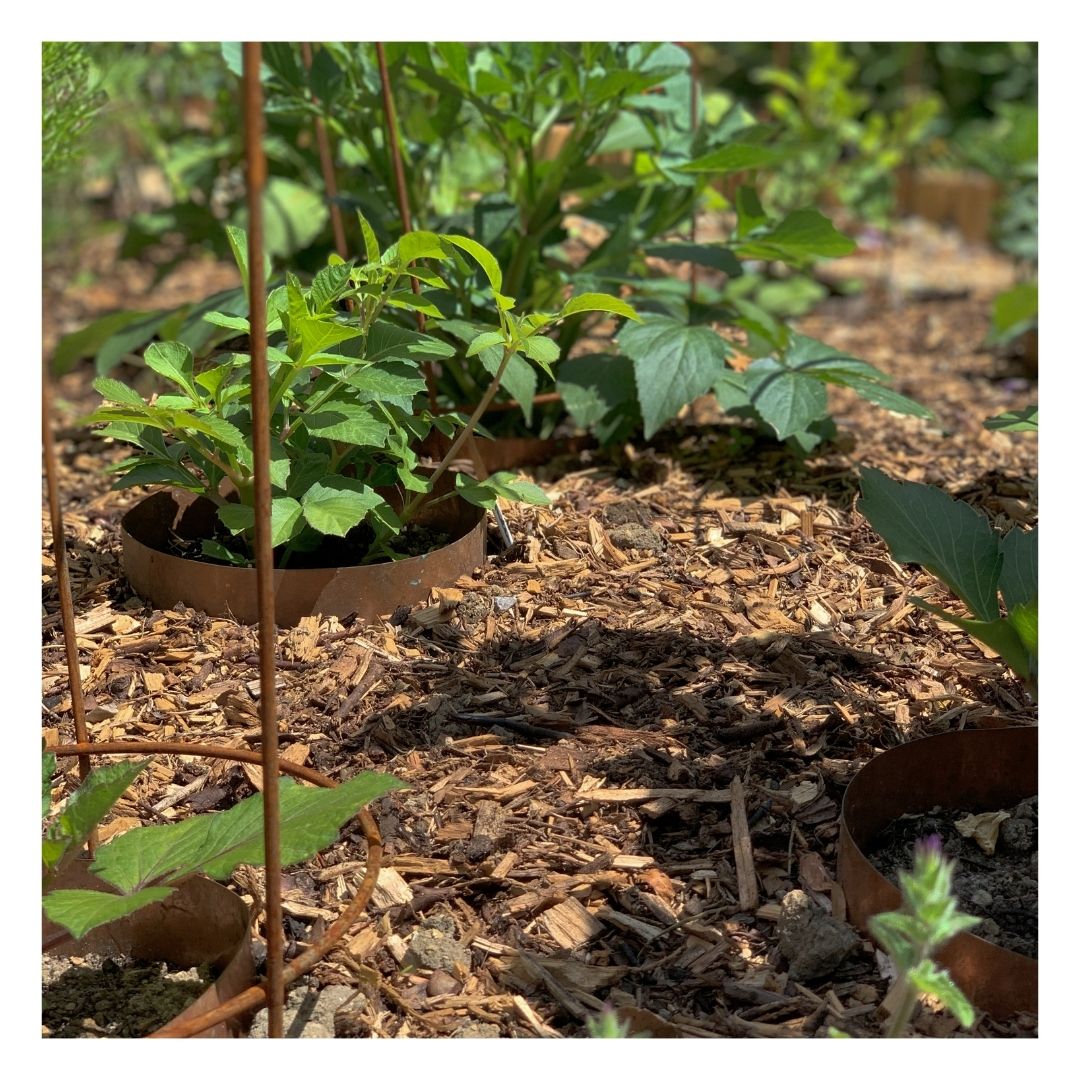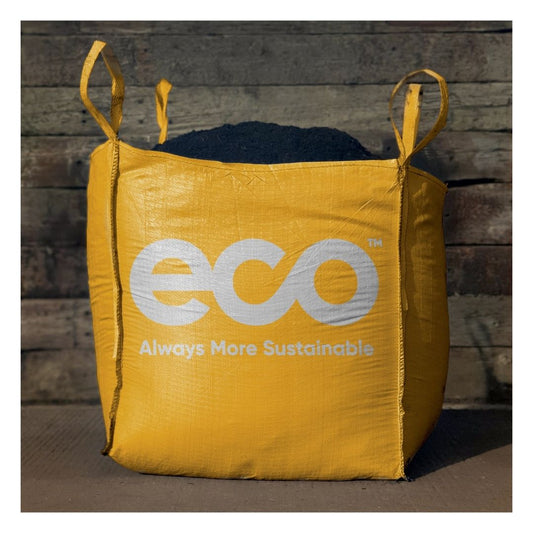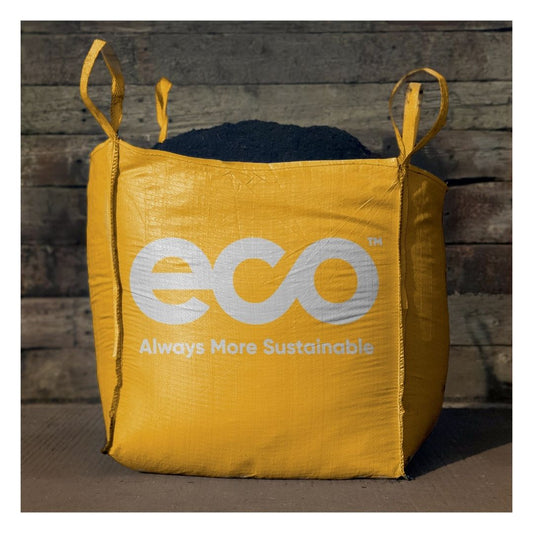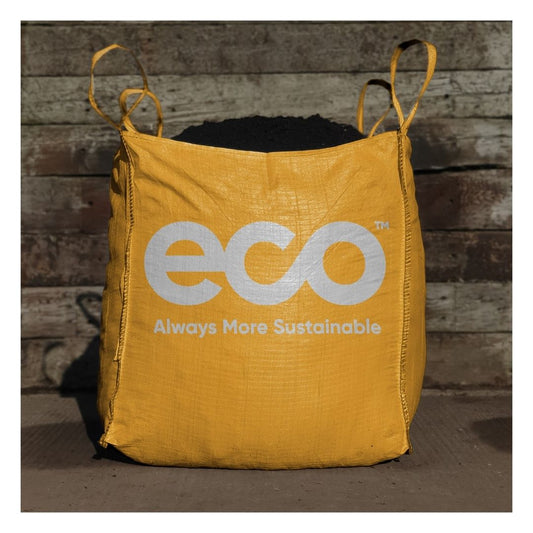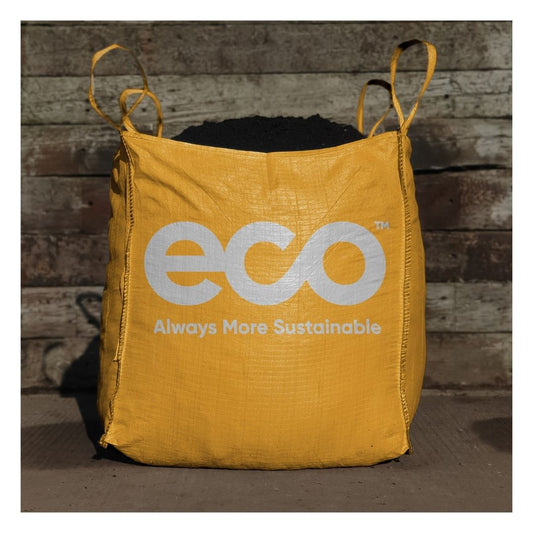The Benefits of Green Compost
Using green compost for gardens, allotments and landscaping has benefits for the environment, soil health and plant health.
Green compost is a valuable source of organic matter which helps to improve soil structure, increases moisture retention and provides nutrients for plants. Compost feeds the organisms which live in the soil which are essential for nutrient cycling and the general health of the soil environment.
Here at Eco we have a great selection of organic Compost and Soil Improvers, so you can find the right one to suit your gardening needs and help improve soil structure.
Compost is a natural product which results from the controlled biological decomposition of biodegradable materials, such as garden and food waste. The BSI PAS 100 compost certification scheme provides a baseline quality standard for compost, ensuring that it is consistent, safe and reliable to use.
Compost and soil organic matter
Increasing the organic matter and humus level in soils helps to improve the water-holding capacity of lighter soils and aids drainage and workability in heavy soils. The risk of soil erosion by water is reduced at higher soil organic matter contents and this has benefits for the wider environment because soil erosion can lead to pollution of rivers and the sea. Our Eco Organic Soil Improver helps support these benefits by having higher soil organic matter contents while being an effective and reliable garden pick. The soil’s biological activity from micro-organisms and fungi through to earthworms is also increased when organic matter levels are raised, which helps to maintain soil structure and soil fertility and to improve soil health generally. Earthworms need organic matter as a food source and are every gardener’s friend because they mix humus into the soil and create channels which help drainage.
A high proportion of the organic matter in green composts is in a lignified (stabilised) form, so it is likely to have a longer-lasting beneficial effect in soil than some other organic materials, such as farm manures.
Compost and plant nutrients
Compost provides slow release plant nutrients which helps to build up natural soil fertility and saves on the use of artificial fertilisers; it is a particularly good source of potash. To help give you a better understanding about the nutrients in soil, you can check out our other blog, The Importance of Soil Sampling.
Environmental benefits of compost
Composting garden and food waste means that it does not go to landfill where it would release methane (a greenhouse gas about 30 times stronger than carbon dioxide). It is more environmentally friendly to compost green wastes than to burn them (which releases carbon dioxide). Compost is a sustainable soil improver and good quality green compost can also be used as a partial replacement for peat in potting mixes which is another environmental advantage. Coarser grade compost makes an ideal mulch to retain soil moisture and prevent weed growth, for example in ‘no-dig’ vegetable plots. It can also be used as a pot topper to reduce water requirements of patio containers.
Check out our range of eco organic composts and soil improvers
Shop Eco Compost & Soil Improvers
-
Eco Organic Compost: Fruit & Veg
Regular price £126.95 GBPRegular priceUnit price per -
Eco Organic Compost: Beds & Borders
Regular price £126.95 GBPRegular priceUnit price per -
Eco Mulch: Soil Improving Mulch
Regular price £121.95 GBPRegular priceUnit price per -
Eco Organic Compost: Tree & Shrub
Regular price £131.95 GBPRegular priceUnit price per
